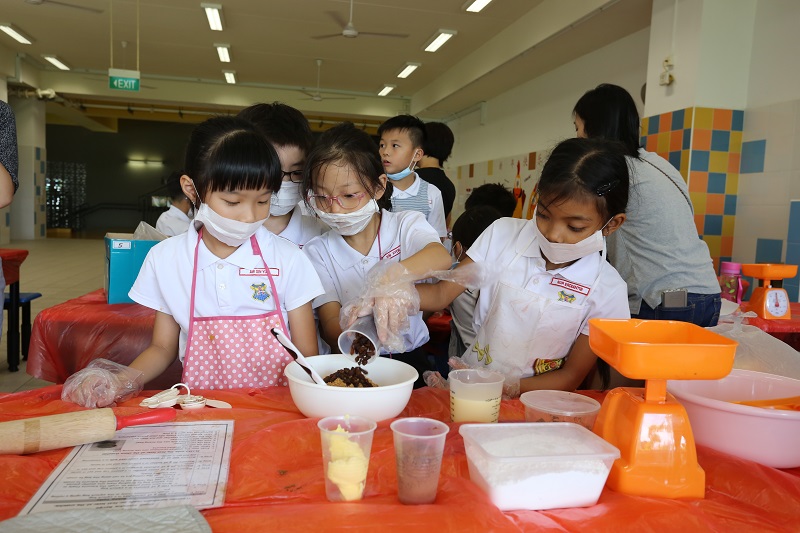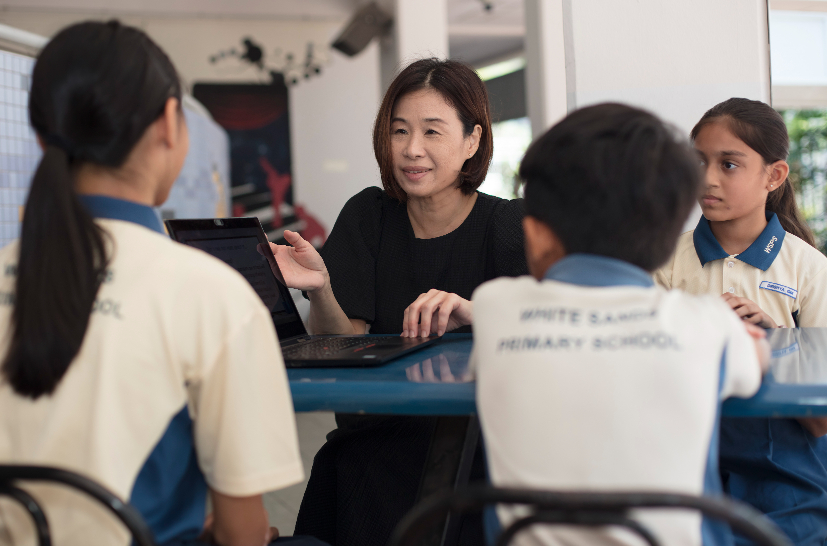At Alexandra Primary School, mathematics lessons are not just about numbers and calculations – students also get to dabble in a variety of hands-on activities, such as shopping and whipping up desserts.
It is all part of the Fun Math programme at the school, where the objective is to provide students with the opportunity to see how mathematical concepts are applied in the real world.
It starts from Primary 1, where students get to head outdoors and explore the school grounds to see how mathematical concepts are applied to the things around them. Students would learn to make use of concepts such as addition and multiplication, to count the number of lights in a room and the number of large rocks in the school campus.
Meanwhile, Primary 2 students get to learn financial literacy and work in groups to come up with shopping lists based on scenarios presented to them. With fictitious currency in hand, the students would visit a mock-up store in school to buy the items they need.
Activities are also lined up for Primary 3 and 4 students, where they get to use kitchen tools to measure ingredients to make a dessert, and also go on a field trip to HDB Hub to find out how geometry and shapes come into play in the construction of a home.
Besides learning and mastering mathematical concepts, these fun activities have also taught students the importance of team work.
“The students have to work in groups and their relationship with one another has improved,” says Mrs Judy Lim, head of department for Mathematics at Alexandra Primary School. “In the dessert-making activity, students of different abilities are grouped together. They would help one another and tap on others’ strengths to work effectively.”
Parents have also expressed support for the programme. “We’ve had parent volunteers who helped with the logistics for the shopping activity and they have first-hand experience in working with our students,” explains Mrs Lim. “They saw that the students enjoyed themselves and they are supportive of the activities.”
Meanwhile, students have also shown excitement and interest in the activities. “The students would ask many questions, and their energy levels are generally quite high during the activities,” shares Mrs Lim.





10db6ca7a8a66eb2afccc900c73e6f2e.jpg)
